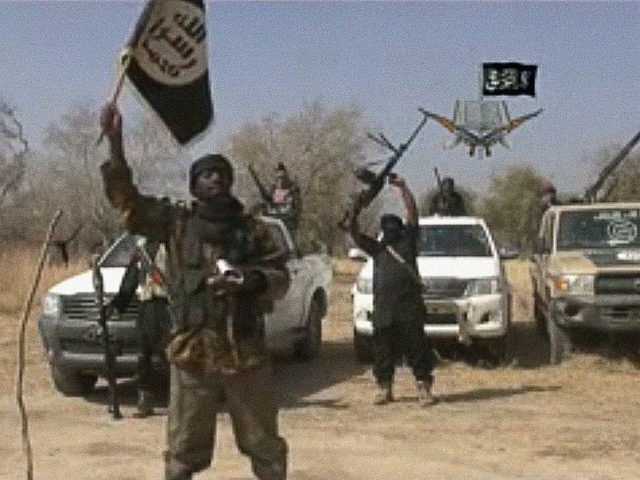Brutal acts at the hands of Boko Haram jihadis are leading Muslims to abandon their faith in the capital of Nigeria’s Borno State, the birthplace of the Islamic State (ISIS/ISIL)-linked terrorist group, an African media outlet reported on Wednesday.
“After a decade of fighting, many in Maiduguri are all the more horrified by the indiscriminate brutality that Boko Haram has committed in the name of Islam,” the African Argument news outlet reported.
“That violence is what led me to believe they were bad for religion,” Ibrahim Suleiman, a resident of the Borno capital of Maiduguri, told the media outlet. “They preached hatred and divided people … Their jihad has failed.”
“People are boycotting the mosques,” he added. “People are afraid of the bombs, but they also no longer trust religious leaders as before.”
The Boko Haram insurgency has been raging since 2009 and has left more than 30,000 people dead, including 20,000 in Borno alone, a database compiled by the Council on Foreign Relations revealed. Boko Haram has also injured scores of others.
According to the U.S. Department of State’s most recent annual assessment of worldwide terrorist activities, Boko Haram was one of the top five deadliest jihadi groups in the globe last year — responsible for 276 attacks that killed 1,287 and injured 949 others.
African Argument noted:
In the birth place of Boko Haram, religious fervor has dimmed after years of unrest. Attendance at Islamic events is down. School enrollment is up … many people seem much more ambivalent about religion than they once were … In what can be seen as a backlash against Boko Haram, which rejected the formal education system, school rates have also risen sharply in Maiduguri − at least anecdotally.
“Now people want education. Enrollment is so high,” Suleiman Aliyu, the headmaster at a private Islamic school in Maiduguri, told African Argument. “They realize they were fooled.”
The name Boko Haram translates to “Western education is a sin.”
Aliyu pointed out that young people no longer listen to Boko Haram-linked lectures with “shaking passion” as they used to.
“People took religion so hard, they were so dogmatic,” Aliyu told the African outlet. “Now they see that has resulted in the problems we have today. They understand that religion is not by force.”
African Argument also noted that the sale of Islamic literature and has dropped along with attendance at religious events, including Friday prayers.
Nevertheless, the outlet conceded, “In these myriad ways, people in Maiduguri are rejecting Boko Haram’s teachings. Yet the conditions that allowed the group to gain popularity in the first place remain.”
Boko Haram’s terrorist activities include kidnappings and forcing captives, including girls, to serve as suicide bombing. Early this year, the United Nations reported that the ISIS-affiliated jihadis have abducted more than 1,000 children in northeastern Nigeria alone since 2013.
The group’s violence has spilled over into neighboring countries from Boko Haram’s home base in Nigeria.
As of 2017, the group had displaced more than 2 million people and left 7 million others in need of humanitarian assistance, according to Human Rights Watch.
African Argument acknowledged that some “reform-minded clerics” have taken a stand against the jihadist group.
“Clerics now generally embrace the idea of some kind of regulation to ensure a similar movement is never allowed to take hold – overhauling the current laissez faire approach where the government has no control over the 300 mosques in Maiduguri where Friday sermons are delivered,” it reported.

COMMENTS
Please let us know if you're having issues with commenting.